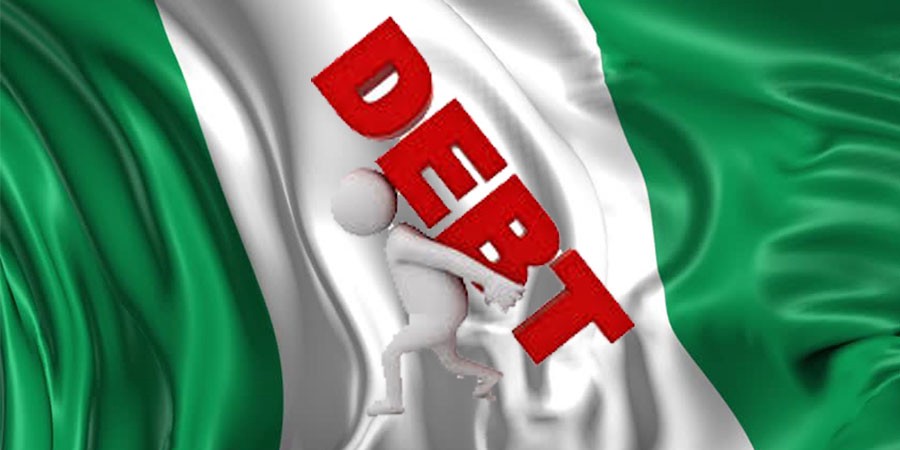Business News
Nigeria’s public debt hits N82 trillion after CBN unifies exchange rates
Nigeria’s public debt was quoted at N448.50/$1 by the Debt Management Office as the official exchange rate but this has now been…

After the naira’s unification, Nigeria’s overall national debt increased by fiat to N82 trillion. Prior to the combine, it was N73 trillion.
In a press release headlined Operational Changes to the Foreign Exchange Market, the Nigerian central bank hinted at the unification of the several exchange rates.
This is in accordance with Bola Ahmed Tinubu, the president, who originally declared this a shift in policy during his inauguration broadcast.
The initial implementation of the policy, which caused the exchange rate to initially decline to N662/$1, has a number of negative effects on the economy, one of which is the automatic rise in the national debt.
Impact on Public Debt
Before now, the nation’s public debt was quoted at N448.50/$1 by the Debt Management Office as the official exchange rate but this has now been depreciated to N662/$1.
- This means the total public debt increases from an estimated N79 trillion to N82 trillion.
- The increase is due to the conversion of the dollar portion of the debt which is estimated at about $41.6 billion. When adjusted for the most recent exchange rate it converts to N27.6 trillion.
- The naira portion of Nigeria’s public debt is about N54.3 trillion and it includes Ways and Means which Nairametrics estimates at about N26.8 trillion.
But while the naira portion of the loan increases the dollar value drops.
Other considerations
It is significant to remember that Nigeria still owes $41.6 billion in foreign money, not naira and that this does not modify the actual obligations of the public debt.
Therefore, the conversion is just done for reporting needs.
When converted, the public debt is anticipated to climb, but the government’s revenue profile is also anticipated to rise.
- All the government’s revenue from the sale of crude oil, and taxes (converted in USD) will all increase by fiat, meaning more money for the government.
Why Public debt is in naira and dollars
Public debt refers to the total amount of money that a government owes to domestic and foreign creditors.
- Public debt is the total amount of money that a government owes to its creditors. It is accumulated over time as the government borrows money to finance its budget deficits. Public debt can be used to fund a variety of government activities, such as infrastructure projects, social programs, and military spending.
- Public debt can be a positive force in the economy if it is used to finance productive investments that boost economic growth. However, if public debt becomes too large, it can lead to higher interest rates, inflation, and a decline in economic growth.
- In Nigeria, public debt is denominated in both the naira and foreign currencies. This reflects the fact that the government borrows money from both domestic and foreign sources.
Why multiple currencies? The use of multiple currencies in denominating public debt serves specific purposes.
- First, denoting debt in the domestic currency (naira) means the government must have borrowed some of the loans in naira.
- This allows the government to have more control over the debt repayment process. It means that the government can make repayments using its own currency, which it can print or control the supply of. T
- his provides a degree of flexibility and reduces the risk of default due to foreign exchange fluctuations.
On the other hand, denominating public debt in foreign currency (such as dollars) provides access to international capital markets and a broader investor base.
- It allows the government to tap into global funding sources and potentially secure more favourable borrowing terms.
- Foreign currency-denominated debt can be attractive to investors seeking diversification and stability, as it is less influenced by domestic economic conditions.
- However, it also exposes the government to exchange rate risks.
- If the domestic currency depreciates significantly against the foreign currency, the burden of debt repayment in local currency terms can become more challenging.
The mix of naira and dollar-denominated public debt reflects the government’s need for a balanced approach that considers both domestic and international borrowing conditions.
More News On RNN
BREAKING: Nigerian banks can now trade Forex Freel; CBN
